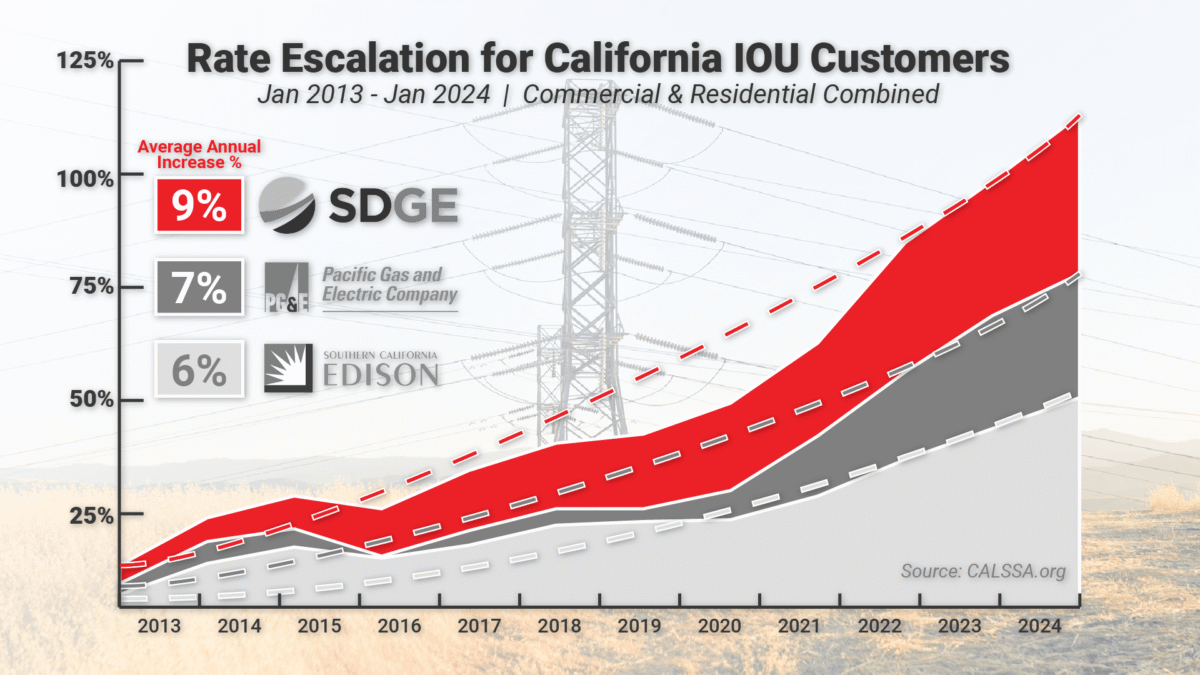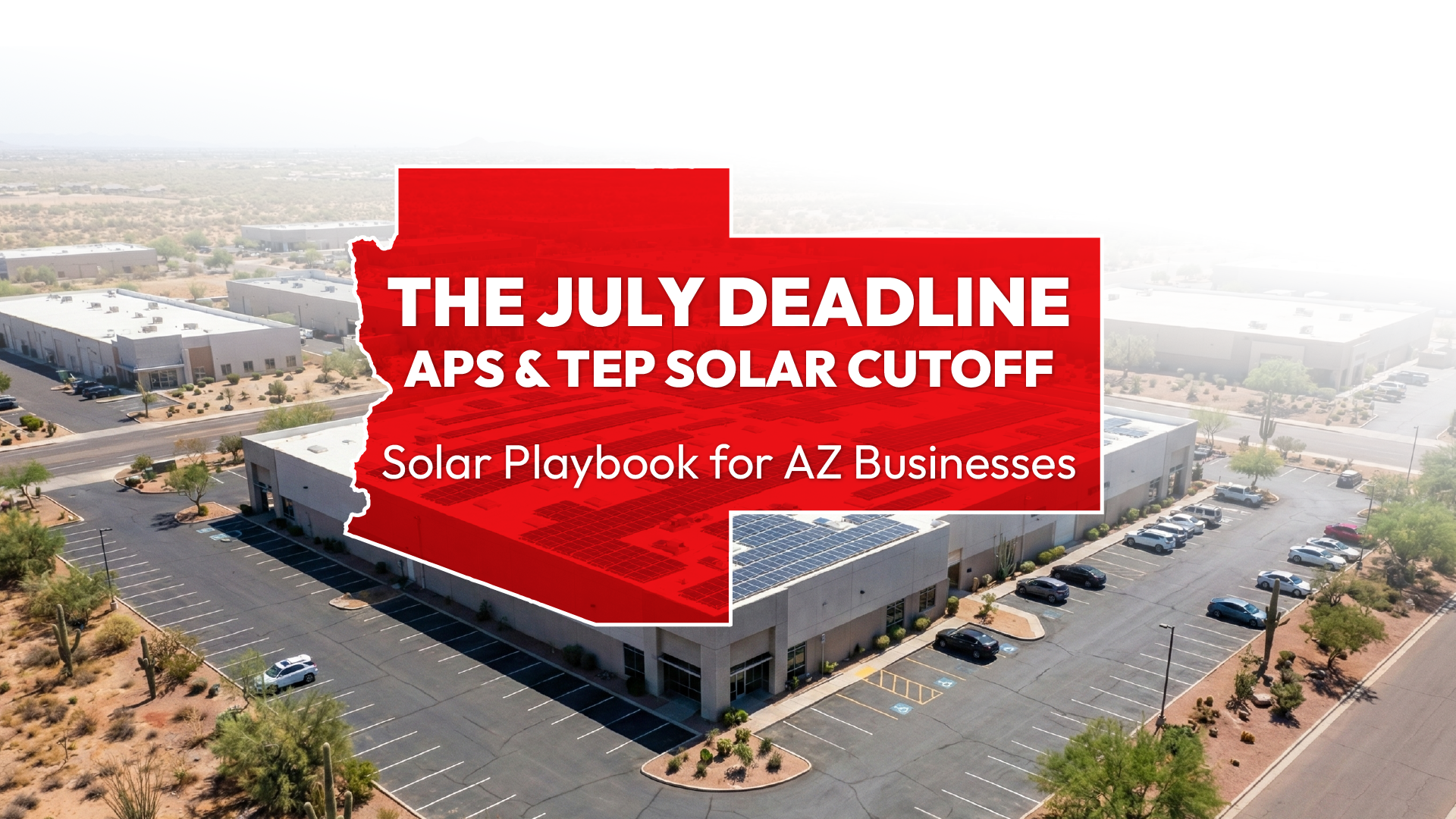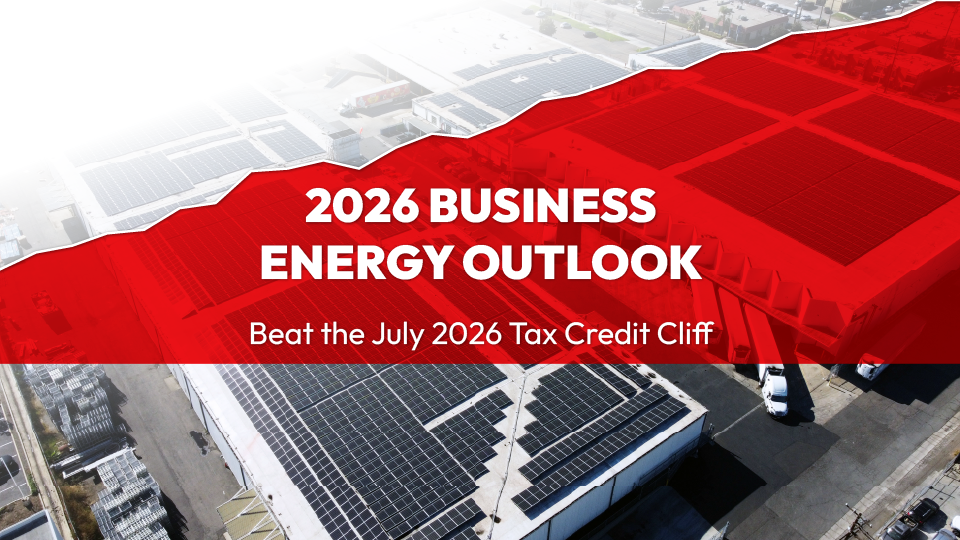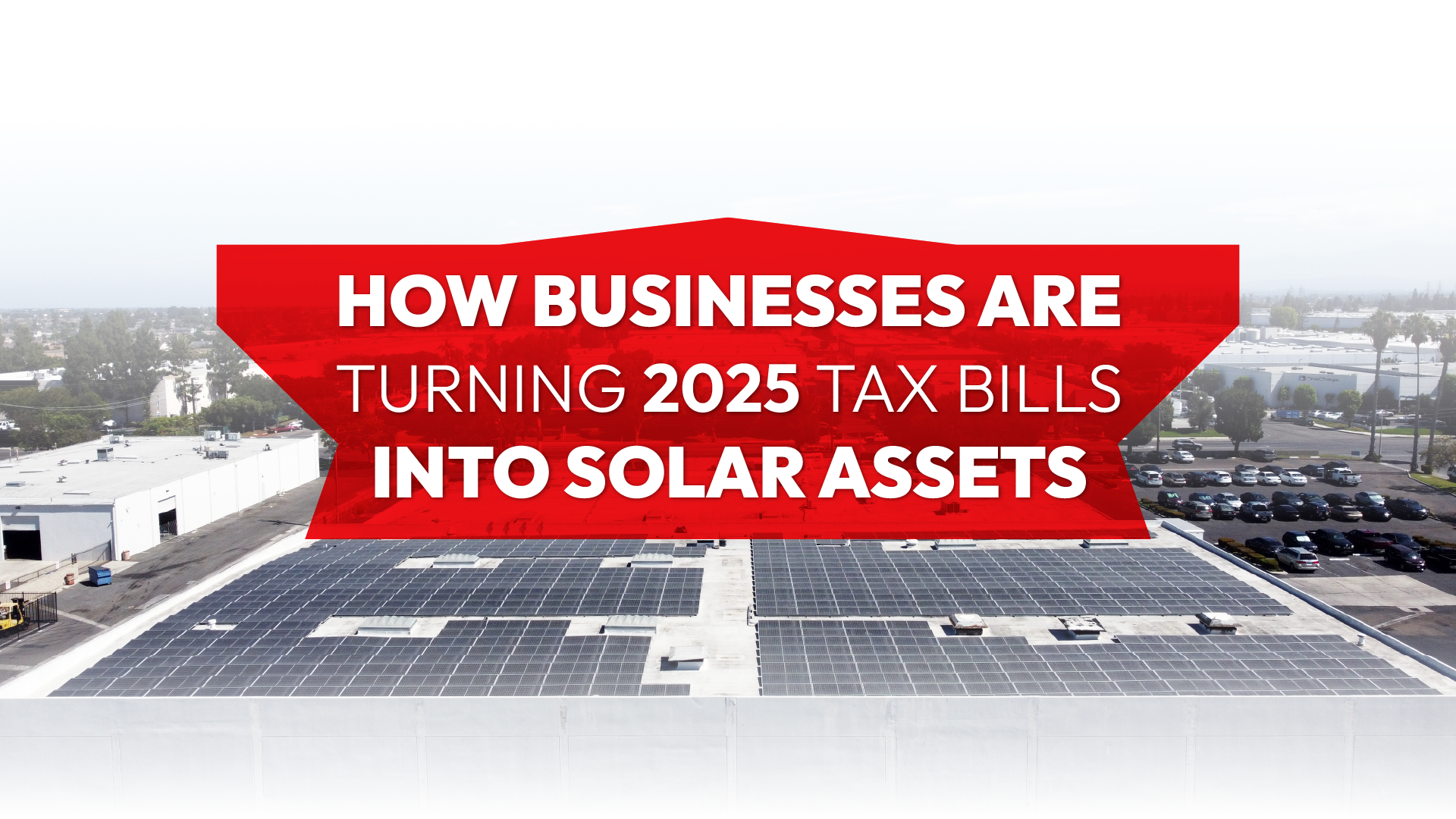How Much Do Commercial Solar Panels Cost?
How much do commercial solar panels cost? Well, there are many factors Revel Energy takes into consideration when we design a commercial solar system. Variables like building location, available space, surrounding energy infrastructure, equipment pricing and construction costs are just a few of the many elements that we design each bespoke system around.
Dollars Per Watt
According to a 2019 study by EnergySage, “The cost of a solar panel system is usually measured in dollars per watt. The average commercial system was priced at $2.65/Watt before any rebates or incentives, with most quotes ranging from $2.50/Watt to $3.22/Watt“.
Incorporating savings from the Solar Investment Tax Credit, here is the estimated average cost of installing a commercial solar panel system determined by system size:
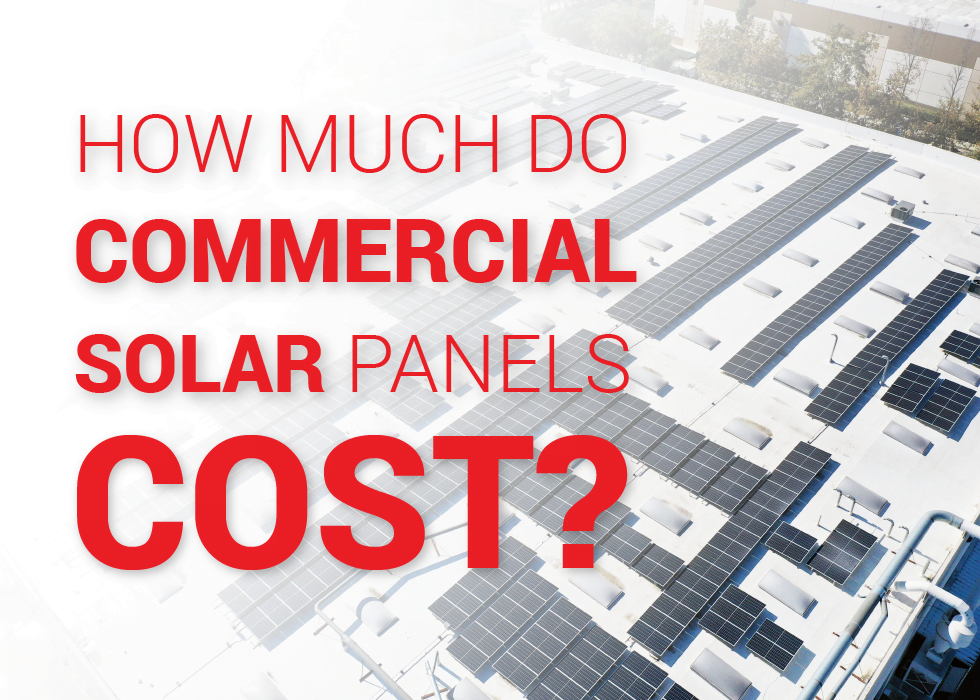
These are approximate estimates based on data from completed projects and EnergySage.
Quality "Tier-1" Commercial Solar Panels
Revel Energy uses the best “Tier 1” panels to ensure long-term performance and warranty coverage. Solar panel brands offer a range of options with different sizes and power output (measured in watts), this market provides EPC’s like Revel the opportunity to design each system to fit the energy demand of a building. Residential solar panels are usually rated around 250W, where larger commercial variants can reach up to 450W.
Commercial solar panel costs and brands can even vary from project to project – depending on available space and how much generation is needed it may be more cost effective to fill that space with larger, but less-expensive lower-efficiency panels.
As the cost of electricity in California for businesses increases, many agricultural, commercial and industrial businesses are fighting these rising rates sustainably with commercial solar and energy storage.
For a majority of utility customers in California, businesses included, the average commercial retail price of electricity has increased on average by about 3.5% per year from 2001 to 2020. However, after global events in 2020 such as the coronavirus pandemic, rates through 2023 have risen much higher than previous averages. Some customers are paying annual increases as high as 23%.
This was revealed to us in a case study conducted by our team looking at customer utility data through the past few years.
Learn how 2024 electricity rates are increasing for businesses throughout California, as more are paying increasing bills to investor-owned utilities Southern California Edison, Pacific Gas & Electric and San Diego Gas & Electric.
Commercial Solar Financing
There are many lucrative incentives available like the Solar Federal Investment Tax Credit that can significantly reduce the net cost of the system. Through depreciation, businesses can deduct up to 85% of the value of their solar asset from their taxes, a welcome offset to the upfront costs of solar.
There are also financing options available that help businesses take advantage of this cash flow creating capital investment.
The Power of Power Purchase Agreements (PPAs) for California Businesses
An increasing number of businesses are turning to Power Purchase Agreements (PPAs) as a cost-effective way to install commercial solar. PPAs offer a way to utilize existing budgeted operating expenses to gradually finance a more sustainable electricity source.
By entering into a PPA, businesses can secure solar energy at a fixed, predictable rate, often lower than the utility’s rate. This approach mitigates the impact of rising electricity rates and also aligns with the growing prevalence of environmental sustainability goals.
A solar PPA protects businesses from a certain future of rising electricity costs by locking in a predetermined escalation rate, using solar generation to offset electricity bills to provide financial and operational flexibility.
Learn if your business can access Commercial Solar through a Power Purchase Agreement (PPA).
Example Case Study
Nubs Plastics
260 kW System size
Nubs Plastics in Vista, CA is a plastics manufacturer that offset 41% of their energy use by covering their roof with commercial solar panels. Rather than high-rated alternatives, Revel fit almost 700 panels into the available space using only 375W rated panels. With the new 260kW system, Nubs can expect their investment to produce $4.2 million dollars of electricity over the life of the system.
Conclusion
Every commercial solar installation is determined by the electricity consumption on the property, we engineer the most optimal solution to offset those energy demands while keeping payback periods short to increase return on investment (ROI). Contact us today to learn how much your business could save with commercial solar.

